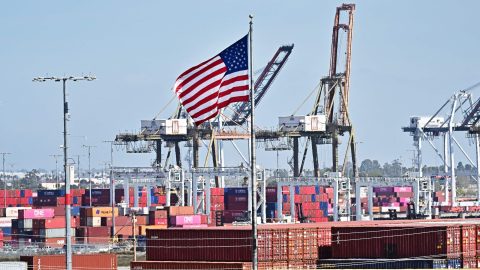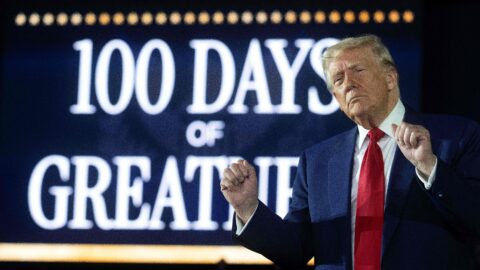The rising relevance of the anti-establishment movement across many parts of the world has instilled a particular sense of urgency and importance into the upcoming presidential elections in the USA on 8 November.
Even though Hillary Clinton’s lead in the polls against Donal Trump has become more comfortable, Mrs. Clinton has not won just yet. What are the possible effects of the election on the markets?
Political populism
In the USA, too, political populism is dominating the election campaign. This makes the future policies even less predictable. Some of the statements made, like the one about deporting 11.5mn illegal Mexican immigrants, sound so incredible as to suggest they are either pure campaign rhetoric or simply not executable. This political uncertainty is just one in a long list of uncertainties (hard landing in China, integrity of the EU, recession in the USA).
Trump victory would come with more significant effects
A victory by Donal Trump would come with more significant effects on the economy and the capital markets than one by Hillary Clinton. This is first of all due to the fact that the statements made by Donald Trump would entail a radical shift in economic policies, whereas Hillary Clinton would favour the status quo. Secondly, in the case of a victory by Hillary Clinton, the mutual blockade of Republicans and Democrats would remain in place if the Republicans were to retain their majority in the House of Representatives.
Hostility increases
The underlying tone of the statements made by Trump can be described as hostile. This affects especially minorities, immigration, foreigners, women, globalisation, global trade, supranational organisations, foreign policy, rule of law, and democracy.
Clinton represents status quo
While the candidate Hillary Clinton is no longer an advocate of global trade anymore and has declared herself in favour of higher taxes for high net worth individuals (HNWIs), overall she is a representative of the status quo.
Potential growth could fall
The basic building block for long-term economic growth is the growth of the employable population. The announced, restrictive immigration policy of the Republican candidate therefore means lower potential growth.
Reform of the labour market?
In contrast to Donald Trump, Hillary Clinton favours a reform that would legalise the status of illegal immigrants. As a result, the wage pressure would not rise as drastically as it would do in the case of the deportation of 11.5mn illegal immigrants.
Both candidates would increase infrastructure
Both candidates are in favour of higher investments in infrastructure, with the extent fluctuating from 0.3% to 0.6% in terms of GDP. Clinton proposes a plan that earmarks USD 275bn over five years for this purpose. Trump’s proposals are very vague, but he has mentioned USD 1,000bn worth of investments.
International Tax policy to be reformed
Both candidates have argued in favour of a reform of international tax policies. This could, among other things, lead to the repatriation of foreign capital of US companies to the USA. The cut of corporate income tax to 15% and of the marginal income tax rate to 33% is one of the few classically Republican demands that Donald Trump is standing for. This would support economic growth, but at the same time would mean a higher budget deficit. The proposal by Hillary Clinton is also in line with the classic demand generally put forward by the Democrats. It involves higher taxes for HNWIs in order to fund spending on healthcare, education, and infrastructure of USD 1,450bn.
Benefits of global trade questioned
Both candidates have questioned the advantages of free trade. Hillary Clinton, too, rejects the Trans-Pacific Partnership (TPP) in its current form, but by contrast, Donald Trump also wants to renegotiate or suspend existing trade agreements such as NAFTA (North American Free Trade Agreement), increase import duties (especially for China), and leave the WTO (World Trade Organisation).
In its most recent World Economic Outlook, the International Monetary Fund (IMF) tried to quantify the effects of protectionist trade measures. Given that countries tend to reciprocate if another country increases import duties, the effects are disruptive. An increase in global import prices of 10% would trigger a slump in exports of 15% (relative to the base case scenario) within five years. Investments would be down 4%, consumption 1.5%. Global GDP would shrink by 2%. This would translate into a global loss of wealth of about USD 1,500bn. The dampening effect would be so strong as to ensure that global inflation, after an initial rise, would be 0.2 percentage points lower than in the base case scenario after five years.
Fiscal policies: government debt will increase
The base case scenario by the CBO (Congressional Budget Office) assumes an increase in government debt of about USD 10,000bn over the coming ten years. The CRFB (Committee for a Responsible Federal Budget) tried to quantify the proposal of the two candidates. Donald Trump’s plans would push up net government debt by USD 5,300bn, or from 80% to 105%, whereas Hillary Clinton’s plans would imply an increase of USD 200bn to 86%.
Trump victory would mean uncertainty
A victory by Donald Trump would entail a drastic rise in uncertainty, a more expansive fiscal policy, bigger wage increases, a slump in global trade, and the strengthening of the global anti-establishment movement. In spite of the widening of the budget deficit, the likelihood of a recession in the USA would increase. A victory by Hillary Clinton would mean the maintenance of the status quo amid a slightly higher budget deficit.
If Trump wins, yields of safe government bonds would fall
In the case of Donald Trump’s victory, the yields of safe government bonds would be falling on a global scale, while risky asset classes would be suffering. The fear of a trade war is bigger than the vague outlook on a fiscal policy that supports the economy. As an added risk, the effectiveness of the already extreme central bank policies has declined further still.
In a Trump victory Mexico and Asia would become under pressure
The top trading partners of the USA would suffer the most. In a first reaction, the currencies of Mexico, Canada, and Asia would come under pressure.
Fed policy remains expansive
The outlook of an expansive fiscal policy (higher budget deficit) defies the textbook notion of causing a more restrictive monetary policy (i.e. more interest rate hikes), because the likelihood of a recession increases and trust is eroded.
US yields fall too
The initial reaction displayed by US Treasury bonds would also be a decline in yields (flight to a safe haven). For international investors, however, the attractiveness of US Treasury bonds as the most important global point of reference would decrease.
US dollar only initially stronger
More or less the same is true for the US dollar. The trade-off of an initial repatriation into the US dollar and a flight into the most important reserve currency is a sustainable erosion of trust. The other reserve currencies JPY, EUR, GBP, and CNY would become more important.
Legal disclaimer
This document is an advertisement. Unless indicated otherwise, source: Erste Asset Management GmbH. The language of communication of the sales offices is German and the languages of communication of the Management Company also include English.
The prospectus for UCITS funds (including any amendments) is prepared and published in accordance with the provisions of the InvFG 2011 as amended. Information for Investors pursuant to § 21 AIFMG is prepared for the alternative investment funds (AIF) administered by Erste Asset Management GmbH pursuant to the provisions of the AIFMG in conjunction with the InvFG 2011.
The currently valid versions of the prospectus, the Information for Investors pursuant to § 21 AIFMG, and the key information document can be found on the website www.erste-am.com under “Mandatory publications” and can be obtained free of charge by interested investors at the offices of the Management Company and at the offices of the depositary bank. The exact date of the most recent publication of the prospectus, the languages in which the fund prospectus or the Information for Investors pursuant to Art 21 AIFMG and the key information document are available, and any other locations where the documents can be obtained are indicated on the website www.erste-am.com. A summary of the investor rights is available in German and English on the website www.erste-am.com/investor-rights and can also be obtained from the Management Company.
The Management Company can decide to suspend the provisions it has taken for the sale of unit certificates in other countries in accordance with the regulatory requirements.
Note: You are about to purchase a product that may be difficult to understand. We recommend that you read the indicated fund documents before making an investment decision. In addition to the locations listed above, you can obtain these documents free of charge at the offices of the referring Sparkassen bank and the offices of Erste Bank der oesterreichischen Sparkassen AG. You can also access these documents electronically at www.erste-am.com.
Our analyses and conclusions are general in nature and do not take into account the individual characteristics of our investors in terms of earnings, taxation, experience and knowledge, investment objective, financial position, capacity for loss, and risk tolerance. Past performance is not a reliable indicator of the future performance of a fund.
Please note: Investments in securities entail risks in addition to the opportunities presented here. The value of units and their earnings can rise and fall. Changes in exchange rates can also have a positive or negative effect on the value of an investment. For this reason, you may receive less than your originally invested amount when you redeem your units. Persons who are interested in purchasing units in investment funds are advised to read the current fund prospectus(es) and the Information for Investors pursuant to § 21 AIFMG, especially the risk notices they contain, before making an investment decision. If the fund currency is different than the investor’s home currency, changes in the relevant exchange rate can positively or negatively influence the value of the investment and the amount of the costs associated with the fund in the home currency.
We are not permitted to directly or indirectly offer, sell, transfer, or deliver this financial product to natural or legal persons whose place of residence or domicile is located in a country where this is legally prohibited. In this case, we may not provide any product information, either.
Please consult the corresponding information in the fund prospectus and the Information for Investors pursuant to § 21 AIFMG for restrictions on the sale of the fund to American or Russian citizens.
It is expressly noted that this communication does not provide any investment recommendations, but only expresses our current market assessment. Thus, this communication is not a substitute for investment advice.
This document does not represent a sales activity of the Management Company and therefore may not be construed as an offer for the purchase or sale of financial or investment instruments.
Erste Asset Management GmbH is affiliated with the Erste Bank and austrian Sparkassen banks.
Please also read the “Information about us and our securities services” published by your bank.



